 |
 |
 |
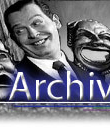 |
 |
 |
 |
 |
 |
Click on the picture of your favorite celebrity to view more information. |
 |
 |
 |
 |
 |
A MATCHLESS LIBRARY TELEVISION ARCHIVE |
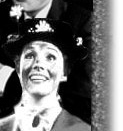 |
|
 |
|
 |
|
 |
|
 |
|
 |
|
 |
|
 |
|
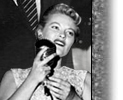 |
|
 |
|
 |
|
 |
|
 |
|
 |
|
 |
|
 |
|
 |
|
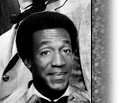 |
|
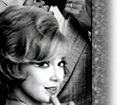 |
|
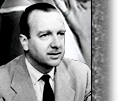 |
|
 |
|
 |
|
 |
|
 |
|
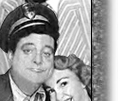 |
|
 |
|
 |
|
 |
|
 |
|
 |
|
 |
|
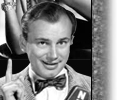 |
|
 |
|
 |
|
 |
|
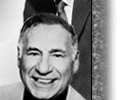 |
|
 |
|
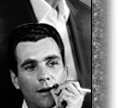 |
|
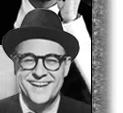 |
|
 |
|
 |
|
 |
|
 |
|
 |
|
 |
|
 |
|
 |
|
 |
|
 |
|
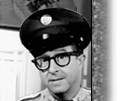 |
|
 |
|
 |
|
 |
|
 |
|
 |
|
 |
|
 |
|
 |
|
 |
|
 |
|
 |
|
 |
|
 |
|
 |
|
 |
|
 |
|
 |
|
 |
|
 |
|
 |
|
 |
|
 |
|
 |
|
 |
|
 |
|
 |
|
 |
|
 |
|
 |
|
 |
|
 |
|
 |
|
 |
|
 |
|
 |
|
 |
|
 |
|
 |
|
 |
|
 |
|
 |
|
 |
|
 |
|
 |
|
 |
|
 |
|
 |
|
 |
|
 |
|
 |
|
 |
|
 |
|
 |
|
 |
|
 |
|
 |
|
 |
|
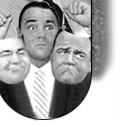 |
|
| Tributes | Talk | Events | News | Variety |
| Documentary | Music | Comedy | Juvenile | Awards |
| Biography | Sports | Productions | Others | Quiz |
| Specials |
|
533 Results found in Category Sports Pages: [1] 2 3 4 5 6 7 8 9 10 11 |
|
#19121:
COLGATE SHAVE CREAM PRESENTS BILL STERN SHOW, THE
1944-08-18, NBC, 15 min. Bill Stern , Ellery Queen December 5th, 1937-June 22nd, 1956 The Bill Stern Colgate Sports newsreel from Hollywood was a radio show on the NBC radio network, sponsored by Colgate Shave Cream and hosted by sportscaster Bill Stern. A series of fifteen-minute interviews with notable public figures from the sports and entertainment industries. Today's topic: Ellery Queen. |
|
#19126B:
COLGATE SHAVE CREAM PRESENTS BILL STERN SHOW, THE
1945-00-00, NBC, 15 min. Frank Sinatra , Bill Stern December 5th, 1937-June 22nd, 1956 The Bill Stern Colgate Sports newsreel from Hollywood was a radio show on the NBC radio network, sponsored by Colgate Shave Cream and hosted by sportscaster Bill Stern. A series of fifteen-minute interviews with notable public figures from the sports and entertainment industries. Guest: Frank Sinatra |
|
#19126A:
COLGATE SHAVE CREAM PRESENTS BILL STERN SHOW, THE
1945-04-27, NBC, 15 min. Bill Stern , Henny Youngman December 5th, 1937-June 22nd, 1956 The Bill Stern Colgate Sports newsreel from Hollywood was a radio show on the NBC radio network, sponsored by Colgate Shave Cream and hosted by sportscaster Bill Stern. A series of fifteen-minute interviews with notable public figures from the sports and entertainment industries. Guest: Henny Youngman |
|
#19123:
COLGATE SHAVE CREAM PRESENTS BILL STERN SHOW, THE
1945-09-14, NBC, 15 min. Bill Stern , Brace Beemer December 5th, 1937-June 22nd, 1956 The Bill Stern Colgate Sports newsreel from Hollywood was a radio show on the NBC radio network, sponsored by Colgate Shave Cream and hosted by sportscaster Bill Stern. A series of fifteen-minute interviews with notable public figures from the sports and entertainment industries. Guest: Brace Beemer who portrayed The Lone Ranger on radio. |
|
#19126:
COLGATE SHAVE CREAM PRESENTS BILL STERN SHOW, THE
1946-00-00, NBC, 15 min. Bill Stern , Sonja Henie December 5th, 1937-June 22nd, 1956 The Bill Stern Colgate Sports newsreel from Hollywood was a radio show on the NBC radio network, sponsored by Colgate Shave Cream and hosted by sportscaster Bill Stern. A series of fifteen-minute interviews with notable public figures from the sports and entertainment industries. Guest: Sonja Henie |
|
#19125:
COLGATE SHAVE CREAM PRESENTS BILL STERN SHOW, THE
1946-06-07, NBC, 15 min. Bill Stern , Eddie Anderson December 5th, 1937-June 22nd, 1956 The Bill Stern Colgate Sports newsreel from Hollywood was a radio show on the NBC radio network, sponsored by Colgate Shave Cream and hosted by sportscaster Bill Stern. A series of fifteen-minute interviews with notable public figures from the sports and entertainment industries. Guest: Eddie (Rochester) Anderson, Jack Benny Show. |
|
#19130:
COLGATE SHAVE CREAM PRESENTS BILL STERN SHOW, THE
1946-06-21, NBC, 15 min. Bill Stern , Orson Welles December 5th, 1937-June 22nd, 1956 The Bill Stern Colgate Sports newsreel from Hollywood was a radio show on the NBC radio network, sponsored by Colgate Shave Cream and hosted by sportscaster Bill Stern. A series of fifteen-minute interviews with notable public figures from the sports and entertainment industries. Guest: Orson Welles |
|
#19131:
COLGATE SHAVE CREAM PRESENTS BILL STERN SHOW, THE
1946-12-20, NBC, 15 min. Bill Stern December 5th, 1937-June 22nd, 1956 The Bill Stern Colgate Sports newsreel from Hollywood was a radio show on the NBC radio network, sponsored by Colgate Shave Cream and hosted by sportscaster Bill Stern. A series of fifteen-minute interviews with notable public figures from the sports and entertainment industries. Annual Christmas Show |
|
#19131A:
COLGATE SHAVE CREAM PRESENTS BILL STERN SHOW, THE
1947-10-31, NBC, 15 min. Bill Stern , Frank Leahy December 5th, 1937-June 22nd, 1956 The Bill Stern Colgate Sports newsreel from Hollywood was a radio show on the NBC radio network, sponsored by Colgate Shave Cream and hosted by sportscaster Bill Stern. A series of fifteen-minute interviews with notable public figures from the sports and entertainment industries. Guest: Frank Leahy |
|
#19131B:
COLGATE SHAVE CREAM PRESENTS BILL STERN SHOW, THE
1948-06-11, NBC, 15 min. Bill Stern , James Braddock December 5th, 1937-June 22nd, 1956 The Bill Stern Colgate Sports newsreel from Hollywood was a radio show on the NBC radio network, sponsored by Colgate Shave Cream and hosted by sportscaster Bill Stern. A series of fifteen-minute interviews with notable public figures from the sports and entertainment industries. Guest: Former heavyweight champion James Braddock. |
|
#19124:
COLGATE SHAVE CREAM PRESENTS BILL STERN SHOW, THE
1948-07-16, NBC, 15 min. Bill Stern , William Powell December 5th, 1937-June 22nd, 1956 The Bill Stern Colgate Sports newsreel from Hollywood was a radio show on the NBC radio network, sponsored by Colgate Shave Cream and hosted by sportscaster Bill Stern. A series of fifteen-minute interviews with notable public figures from the sports and entertainment industries. Guest: William Powell subbing for Bill Stern. |
|
#19127:
COLGATE SHAVE CREAM PRESENTS BILL STERN SHOW, THE
1949-11-18, NBC, 15 min. Bill Stern , Doak Walker December 5th, 1937-June 22nd, 1956 The Bill Stern Colgate Sports newsreel from Hollywood was a radio show on the NBC radio network, sponsored by Colgate Shave Cream and hosted by sportscaster Bill Stern. A series of fifteen-minute interviews with notable public figures from the sports and entertainment industries. Guest: Doak Walker (football player) |
|
#19128:
COLGATE SHAVE CREAM PRESENTS BILL STERN SHOW, THE
1949-11-25, NBC, 15 min. Bill Stern , Four Horsemen December 5th, 1937-June 22nd, 1956 The Bill Stern Colgate Sports newsreel from Hollywood was a radio show on the NBC radio network, sponsored by Colgate Shave Cream and hosted by sportscaster Bill Stern. A series of fifteen-minute interviews with notable public figures from the sports and entertainment industries. Guest: The Four Horsemen |
|
#19129:
COLGATE SHAVE CREAM PRESENTS BILL STERN SHOW, THE
1950-01-06, NBC, 15 min. Bill Stern , George Raft December 5th, 1937-June 22nd, 1956 The Bill Stern Colgate Sports newsreel from Hollywood was a radio show on the NBC radio network, sponsored by Colgate Shave Cream and hosted by sportscaster Bill Stern. A series of fifteen-minute interviews with notable public figures from the sports and entertainment industries. Guest: George Raft |
|
#19122:
COLGATE SHAVE CREAM PRESENTS BILL STERN SHOW, THE
1950-01-13, NBC, 15 min. Bill Stern , Boris Karloff December 5th, 1937-June 22nd, 1956 The Bill Stern Colgate Sports newsreel from Hollywood was a radio show on the NBC radio network, sponsored by Colgate Shave Cream and hosted by sportscaster Bill Stern. A series of fifteen-minute interviews with notable public figures from the sports and entertainment industries. Today: Boris Karloff |
|
#10752:
PABST BLUE RIBBON BOUTS:
HEAVYWEIGHT BOXING CHAMPIONSHIP: EZZARD CHARLES VS. JOE LOUIS.
1950-09-27, CBS, 60 min. Joe Louis , Jack Brickhouse , Ezzard Charles , Russ Hodges , Ted Husing PABST BLUE RIBBON BOUTS (CBS TELEVSION WEDNESDAY NIGHTS)
October 28, 1948 - May 25, 1955
This the CBS Radio Broadcast of the fight.
Undefeated Heavyweight Boxing Champion, Joe Louis, meets Ezzard Charles for the heavyweight boxing championship of the world. Charles wins a unanimous fifteen round decision becoming the only man to go the full fifteen rounds with Louis and win.
Opening of the broadcast with Pabst commercial is recorded with Jack Brickhouse and Russ Hodges discussing the significance of this match even taking away back page headlines during New York Yankess pennant race.
The fight is called by Russ Hodges. Every round is recorded. After 15 rounds of boxing, official announcements from judges and referee declaring unanimous decisive win for Ezzard Charles.
Ted Husing in the ring interviews Ezzard Charles and a number of his corner men. Wrap-up evaluations with Jack Brickhouse and Russ Hodges signing off.
|
|
#5905B:
BROOKLYN DODGERS VS NEW YORK GIANTS BASEBALL PLAYOFF GAME 3 (1951)
1951-10-03, WCFL, 132 min. Duke Snider , Jackie Robinson , Alvin Dark , Willie Mays , Leo Durocher , Ralph Branca , Pee Wee Reese , Monte Irvin , Don Newcombe , Sal Maglie , Hank Thompson , Whitey Lockman , Eddie Stanky , Bobby Thomson , Wes Westrum , Carl Furillo , Gorden McLendon , Andy Pafko , Don Mueller , Clint Hatung , Bill Rigney , Ray Noble , Larry Jansen The Liberty Network, WCFL, Chicago aircheck.
The National League Championship game number three, that included the famous game-ending home run by Bobby Thompson ("The Shot Heard Round the World").
This radio broadcast is actually a re-creation, using data about the game sent in by wire. The announcer is Gordon McLendon, who owned the Liberty Network.
|
|
#5898B:
NEW YORK GIANTS VS BROOKLYN DODGERS: GAME 3 PLAYOFFS (1951)
1951-10-03, WMCA, 34 min. Duke Snider , Ford Frick , Roy Campanella , Bob Prince , Russ Hodges , Alvin Dark , Willie Mays , Leo Durocher , Toots Shor , Monte Irvin , Ernie Harwell , Sal Maglie , Hank Sims , Jim Hearn , Herman Franks , Walter OMalley , Steve Ellis , Whitey Lockman , Eddie Stanky , Bobby Thomson , Bill Rigney , Larry Jansen , Sheldon Jones , Charlie Dressen , Horace Stoneham , Charley Finney , Eddie Bracket , Art Flynn , Chris Durocher , Paul Richards , Willard Marshall , Lawrence Goldberg , Sylvia Goldberg
Recorded coverage beginning in the last of the ninth inning, with the New York Giants Whitey Lockman at bat; the score 4 to 2 Brooklyn. Announcer Russ Hodges calls the play by play, as Bobby Thomson hits a homerun ("The Shot heard Round the World"), winning the best two out of three playoff series (the FIRST nationally televised baseball series ever broadcast, coast to coast).
Wrap up of the game is heard by Bob Prince (baseball announcer for the Pittsburgh Pirates 1948-1975), who attended the game and sat along side best friend Russ Hodges in the booth.
Post game clubhouse (New York Giants) interviews begin with Steve Ellis, Ernie Harwell and Russ Hodges behind the mike. Those interviewed, in a emotional celeritous Giant clubhouse, are Herman Franks, Alvin Dark, Larry Jansen, Eddie Stanky, Charlie Dressen, Ford Frick, Horace Stoneham, Bill Rigney, Hank Sims, Walter O'Malley, Bobby Thomson, Charley Finney, Jim Hearn, Eddie Bracket, Art Flynn, Leo Durocher, Chris Durocher (son), Willie Mays, Whitey Lockman, Sal Maglie, Monte Irvin Paul Richards, Duke Snider, Roy Campanella, Sheldon Jones and Willard Marshall.
NOTE:
In addition to NBC's TV crew, six radio networks set up shop in the press box attached to the underside of the upper deck.
• Russ Hodges did the Giants' broadcast solo because NBC hired his partner, Ernie Harwell, to handle their telecast. Hodges's friend Bob Prince, the Pirates' announcer, sat next to him as a guest, and filled in for Hodges and Harwell in the celebratory New York Giant’s locker room after the game ended with a wrap up summary prior to the beginning of the many interviews that would follow and captured on audio.
• Red Barber and Connie Desmond would, as usual, call the game for the Dodgers (WMGM).
• The Liberty Broadcasting Network, which recreated most of its baseball and football broadcasts from its studio in Dallas, sent "The Old Scotsman" Gordon McLendon to call the game live. His broadcast is the only one that survives as complete, on audio tape.
• Al Helfer reported the action on the Mutual Broadcasting System, largest in the nation.
• Harry Caray of the Cardinals broadcast the game for a group of Midwest stations.
• Buck Canel and Felo Ramirez did the Spanish broadcast for Latin America.
Russ Hodges: “The Giants win the pennant! The Giants win the pennant! Bobby Thomson hits into the lower deck of the left-field The Giants win the pennant! And they’re going crazy! They are going crazy! Oh-oh!”
“Everybody remembers it now,” said Bobby Thomson. “But you have to understand the feeling between those teams. I didn’t think of the pennant — only that we beat the Dodgers.”
Hodges: “I don’t believe it! I do not believe it! Bobby Thomson hit a line drive into the lower deck of the leftfield stands, and the whole place is going crazy! The Giants Horace Stoneham is now a winner. The Giants won it by a score of 5 to 4, and they’re picking Bobby Thomson up and carrying him off the field!”
NOTE:
Before videotape recording and playback available beginning November 30, 1956 the only way to reproduce a television broadcasts, as it aired live, was via a film camera using film (usually on black & white 16mm Kodak reversal film stock)to record a TV screen monitor recording a copy of a broadcast.The process was called kinescoping. “Kinescopes were fuzzy and extremely bulky, and costly to accomplish, so the networks of the 1950s saved almost nothing.
Few professionals and lay persons even had an audio tape reel-to-reel tape recorder to record even the sound of a broadcast (sold commercially only a few years before) which were hard to carry around, expensive to purchase as well as the cost incurred to purchase audio tape 1/4" reels, so not only the average person didn’t have one, it was rare for anyone to audio record a TV program at that time (almost non-existent).
However, In Brooklyn, a restaurant waiter Laurence Goldberg did own one. Goldberg was a New York Giant fan from the time he was 8 years old. Having to leave for work in Manhattan, he instructed his mother, Sylvia, who knew little about baseball, to hit the “record” button in the bottom of the ninth which she did, with one out and Whitey Lockman at bat, the score now 4 to 2 Brooklyn.
Lockman doubles. The Giants now have men on second and third base. Bobby Thomson comes to the plate, and the rest is history!
The next day, Larry Goldberg wrote a letter to Russ Hodges about his tape recording, which was not recorded my WMCA radio, or it turns out to be by anyone else (similar to the scenario of Phil Gries' solo home audio tape recording of Don Pardo announcing, over NBC TV, the first bulletins of the JFK assassination, eight years later). Russ Hodges sent Goldberg $10 to use his borrowed copy to record a 1951 Christmas gift for friends. During the fall of 1952 sponsor Chesterfield cigarettes released a record of “the most exciting moment in baseball history, including that famous Bobby Thomson homerun.”
NOTE:
The National Recording Registry chose announcer Russ Hodges’ call of the 1951 National League tiebreaker between the New York Giants and the Brooklyn Dodgers for inclusion in their archive of iconic American sounds.
Courtesy National Baseball Hall of Fame and Museum.
Why so memorable:
Russ Hodges’ “The Shot Heard ’Round the World?”
At the time, Dodgers-Giants forged sport’s greatest rivalry, yearly playing 22 games against each other on radio and TV, broadcasting through The City. America in the world’s post-war colossus, perhaps baseball never meaning more. What made the moment of this historic homerun memorable for all time was the Giants announcer’s call.
On August 13, Brooklyn led the National League by 13 and 1/2 games. By September 20 the Giants trailed by 6 with 7 left. Then with both teams in a tie at the end of their 154 game season a best of three playoff National League contest was played.
Russ Hodges stated, “all baseball fans focused on our rivalry.” Even the Voice of the American League Yankees was transfixed. “Think of it,” said Voice Mel Allen. “Three New York teams out of the big leagues’ of 16 remain alive. One’s already in the Series, the other two tied.” For years a red-blooded American could recite the script by rote. It is easy to see why so much excitement was brewing during that October of 1951.
The NL playoff became the then most widely aired event in radio and TV history. Seven networks, five of them radio, did at least one game: the Mutual and Liberty Broadcasting system with announcer Gordon McClendon, Dodgers’ radio WMGM and Brooklyn Dodgers’ Re-created Network(s); Giants’ WMCA Radio; and CBS TV—the latter airing the first coast-to-coast network sports telecast for game one of the playoffs (October 1st), with Red Barber doing the play by play.
With the playoff series moving the following day to the Giants’ home park, the Polo Grounds, NBC TV moved in to pick up the rights, negotiating directly with WPIX, New York, which had carried the Giant’s home schedule all year.
CBS TV held on to westbound relay until 3 pm and NBC broadcast the game from 3:00pm to conclusion. It was necessary for the two networks to swap time each day to permit their carrying the full game which started at 1:30pm.
On October 3, 1951 Ernie Harwell did play by play on NBC TV which to this day has never been archived in any manner.
Only four years earlier Americans had owned only 17,000 TV sets v. 58 million radios. By 1951 video had become an irresistible object. Radio was the immovable object, some feeling TV cursory. Such a schism towered as Russ and Ernie “tossed a coin [about a possible Game Three],” Harwell laughed. When Ernie got TV, he joked, “I felt sympathy for ‘Ole’ Russ. All these radio networks and I was gonna’ be on TV, and I thought that I had the plum assignment.”
New York won the opener, 3-1. Next day changed place (Polo Grounds) and outcome (Dodgers win 10-0). His plum then spoiled.
The night before the final, Hodges stayed awake gargling. Worse, to test his voice, he kept talking into a microphone at home, hurting his throat. Next day, at 3:48 P.M., Ralph Branca threw a two-on one-out ninth-inning 0 & 1 pitch with Brooklyn up, 4-2.
“There’s a long drive!” WMCA’s Russ began. “It’s going to be, I believe! … The Giants win the pennant! The Giants win the pennant! The Giants win the pennant! The Giants win the pennant! Bobby Thomson hits into the lower deck of the leftfield stands! The Giants win the pennant! And they’re going crazy! They are going crazy! Oh-oh! The Giants . . . have won it by a score of 5 to 4, and they’re picking Bobby Thomson up and carrying him off the field. I don’t believe it! I don’t believe it! I do not believe it. Bobby Thomson hit a line drive into the lower deck of the leftfield stands, and the whole place is going crazy!”
NOTE: This broadcast moment is one of the greatest broadcasts ever aired on radio or television. And That's the Way it Was, October 3rd, 1951.
This remastered 34-minute retrospective was remastered by Phil Gries. It is the most complete audio extant and available representing this radio broadcast with best possible sound created.
|
|
#5898A:
WORLD SERIES (1951): NEW YORK GIANTS VS NEW YORK YANKEES - HIGHLIGHTS (GAME 1, 5, 6).
1951-10-04, MBS, 95 min. Mel Allen , Yogi Berra , Phil Rizzuto , Bob Sheppard , Johnny Sain , Mickey Mantle , Alvin Dark , Joe DiMaggio , Willie Mays , Hank Bauer , Jerry Coleman , Monte Irvin , Gil McDougald , Al Helfer , Bobby Brown , Joe Collins , Bob Kuzava , Ed Lopat , Allie Reynolds , Johnny Mize , Gene Woodling , Clint Hartung , Dave Koslo , Whitey Lockman , Eddie Stanky , Bobby Thomson , Wes Westrum , Sal Yvars , Bob Meusel , Hank Thomson
The 1951 World Series matched the two-time defending champion New York Yankees against the New York Giants, who had won the National League baseball pennant in a thrilling three-game playoff with the Brooklyn Dodgers on the legendary home run by Bobby Thomson (the Shot Heard 'Round the World).
In the Series, the Yankees showed some power of their own, including Gil McDougald's grand slam home run in Game 5, at the Polo Grounds. The Yankees won the Series in six games, for their third straight title and 14th overall. This would be the last World Series for Joe DiMaggio, who retired afterward, and the first for rookies Willie Mays and Mickey Mantle.
This was the last Subway Series the Giants played in. Both teams would meet again eleven years later after the Giants relocated to San Francisco. They have not played a World Series against each other since. This was the first World Series announced by Bob Sheppard, who was in his first year as Yankee Stadium's public address announcer. It was also the first World Series to be televised exclusively by one network (NBC) as well as the first to be televised nationwide, as coaxial cable had recently linked both coasts.
Rare highlights of game one, five, and six of the 1951 World Series broadcast on the Mutual Broadcasting System radio network.
Game One - The opening with commentator Al Helfer who for the first seven minutes mentions multiple times yesterday's historic Bobby Thomson winning home run against the Brooklyn Dodgers.
Helfer states the opening line-up for both teams.
Mel Allen is heard doing the play-by-play during an historic first inning which includes Monte Irvin's steal of home, only the fourth time successfully executed in World Series history, last done by Bob Meusel thirty years ago in 1921. This game is notable for rookie Yankee Mickey Mantle who is lead-off hitter for the New York Yankees.
We hear highlights during the bottom of the Yankee second inning which includes Gil McDougald's first World Series hit (double).
Al Helfer does the play-by-play in the top of the Giant sixth inning which includes a home run by Alvin Dark and Monte Irvin's fourth consecutive hit in the game.
Highlights of game five. Al Helfer states the opening line-ups for both teams. Mel Allen does the play-by-play for the top of the Yankees' first inning, and top of the Yankees' third inning which includes Gil McDougald hitting only the third Grand Slam in World Series history. Also heard is Phil Rizzuto hitting a home run in the top of the fourth inning and Joe DiMaggio doubling in the top of the seventh inning, playing the next to last game in his career (1936-1951).
Mel Allen recaps game five's 13 to 1 Yankee massacre of the 1951 World Series.
Highlights of Game six. Opening with Mel Allen stating the line-ups for both teams.
Al Helfer does the play-by-play for the bottom of the Yankee first inning. Brief play-by-play in the Giant top of the fifth inning with Willie Mays singling. Mel Allen calls the ninth inning which is a nail bitter as the New York Giants load the bases with no outs, trailing 4 to 1. After the Giants close within one run with the potential tying run on second base, a racing Hank Bauer makes a sensational sliding catch by pinch hitter Sal Yvars to end the game giving the New York Yankees their fourteenth World Championship.
The 1951 season has been referred to as "The Season of Change" as it witnessed the departure of several of the games veteran superstars and the introduction of a new generation of talent. Several new rookies on the scene including a young 19-year-old switch hitter named Mickey Mantle and a phenomenal 20-year-old outfielder named Willie Mays begin their historic careers.
NOTE: These rare sound tracks were discovered at WOR radio station in the 1960's. They were on multiple 16" Electronic Transmission discs. Each side of one disc contained 15 minutes of audio. This 95-minute compilation of broadcast audio highlights of the 1951 World Series is all that exists of this classic World Series broadcast. RARE.
|
|
#10962:
HEAVYWEIGHT BOXING CHAMPIONSHIP: MARCIANO VS. WALCOTT
1953-05-15, , min. Rocky Marciano , Jersey Joe Walcott , Frank Sikora The second Rocky Marciano vs. Jersey Joe Walcott heavyweight championship fight in Chicago. Marciano, who knocked out then heavyweight champion Walcott in their first 1952 bout in the 13th round, knocked down Walcott in the first round of their second fight and the bout was declared a knockout. The result was disputed by Walcott's corner, arguing a fast count by referee Frank Sikora. But it appeared that Walcott rose a split-second too late, to end the uneventful bout. This proved to be the 39-year old Walcott's final bout and was Marciano's first defense of the heavyweight title he won from Walcott a year earlier. |
|
#5905A:
WORLD SERIES 1955 (GAME ONE)
1955-09-28, WNBC, 11 min. Mel Allen , Whitey Ford , Jackie Robinson , Don Hoak , Casey Stengel , Gil Hodges , Vin Scully , Gil McDougald , Carl Furillo , Don Zimmer , Frank Kellert , Don Bessent , Jim Gilliam The World Series, GAME ONE, September 28, 1955, at Yankee Stadium.
The Brooklyn Dodgers vs New York Yankees.
This is the NBC TV broadcast with Vin Scully calling the play by play.
Jackie Robinson’s most famous time stealing home plate came against the New York Yankees in the eighth inning of Game 1 of the 1955 World Series. He was called safe, much to the dismay of Hall-of-Fame catcher Yogi Berra, who even in retirement insisted Robinson was out.
The Dodgers icon racked up 197 stolen bases in 1,382 career games. Robinson led the National League with 29 stolen bases when he was named Rookie of the Year in 1947, and he paced the Majors with 37 two years later en route to earning the MVP Award.
*This successful single straight steal of home in a World Series has been, to date, the last time this feat was accomplished, over 68 years ago (Hear Jackie Robinson state to Mel Allen why he stole home when the Dodgers were trailing the Yankees, in the 8th inning, during this game on ATA#107, July 29, 1961).
Top of the eighth inning, Carl Furillo singles to center field.
Gil Hodges flies out to left field.
Jackie Robinson gets on base when his ground ball goes through the legs of New York Yankee third baseman, Gil McDougald...Furillo advancing to third base and Jackie winding up at second base. Don Zimmer flies out to center field allowing Furillo to tag up from third base making the score now 6 to 4, in favor of the New York Yankees. Robinson tags up from second base and advances to third base. Frank Kellert pinch hits for Brooklyn Dodger pitcher reliever, Don Bessent. On the second pitch by Whitey Ford, Jackie Robinson steals home, only the fifth player to accomplish this feat in World Series history, and the last to do so.
NOTE: Not included in this air check is Kellert's single, after Robinson steals home. We pick up Vin Scully's play by play with Casey Stengel leaving in Whitey Ford to continue pitching and Don Hoak pinch running for Kellert, whose single is missing from this recording. Jim "Junior" Gilliam pops out to third base ending the inning. Mel Allen is heard doing a Gillette commercial with Casey Stengel.
Brooklyn Dodger Line-Up as described in
www.baseball-reference.com
Jim Gilliam LF
Pee Wee Reese SS
Duke Snider CF
Roy Campanella C
Carl Furillo RF
Gil Hodges 1B
Jackie Robinson 3B
Don Zimmer 2B
Don Newcombe P
Don Bessent P
Clem Labine P
Frank Kellert PH
Don Hoak PR
NOTE: In a phone conversation with Vin Scully (October 19, 2021), Phil Gries plays the steal of home by Jackie Robinson audio track to which Scully states that his "trademark was to call a play and then shut up."
This conversation between Vin Scully and Phil Gries can be heard on the ATA website Home Page (Scrawl down right column to locate).
When Jackie Robinson stole home Scully stated, "Robinson is dancing off third, shaking up the crowd. Robbie is coming to the plate. The throw to Berra. He steals it!"
Only the roar of the crowd can be heard for over a minute afterwards, with no additional commentary from the greatest baseball announcer of all time, Vin Scully, as agreed upon by most baseball journalist historians.
NOTE:
Angeles City Council on Friday officially renamed Elysian Park Avenue after the revered announcer, Vin Scully, who's been the voice of the Dodgers for 67 years. (AP Photo/Damian Dovarganes)
By: Ed Sherman
September 14, 2016
There are many ways to measure the incredible longevity of Dodgers announcer Vin Scully. Given my background, I will go with the sportswriter perspective.
When Scully made his debut in 1950, Grantland Rice, the most influential sportswriter of all time, was writing columns about Jackie Robinson for a Dodgers teams located in Brooklyn.
Now that is some longevity.
Well, it turns out old Vin couldn’t go on forever. After 67 years in the booth, he finally is hanging up the microphone at the end of the Dodgers season.
It truly has been an epic run for Scully, and the fanfare will be unprecedented for his final game broadcasts. In the vast pantheon of great announcers in baseball history, there is no debate about No. 1.
“He’s so much greater than anyone who has ever done this,” Cubs radio announcer Pat Hughes told me for a Chicago Tribune column on Scully. “It’s not even close. It’s an embarrassment of riches. He’s the best, he’s done it the longest and he’s been with one franchise. It’s amazing all of this can be said about one man.”
Scully will leave behind numerous lessons for current and prospective members of the media. First and foremost is his emphasis on preparation. Hughes and Cubs TV announcer Len Kasper each made a point of marveling at how much research Scully does for a broadcast.
Yet something Kasper said really gets to the essence of what makes Scully so great.
“It’s so striking that what he says, and the words he uses, plays as well on paper as it does on a broadcast,” Kasper said. “He’s like a great author. His pen is his voice.”
|
|
#11061:
SAL MAGLIE'S NO-HITTER
1956-09-25, WOR, 10 min. Sal Maglie , Al Helfer , Marv Blaylock , Richie Ashburn , Harvey Haddix , Frankie Baumholz Brooklyn Dodger pitcher Sal Maglie, acquired from the Cleveland Indians, pitches a 5-0 shutout no-hitter vs. the Philadelphia Phillies at Ebbets Field in Brooklyn. The WOR TV Channel 9, in New York, coverage begins in the top of the 9th inning. Al Helfer at the television microphone with the Brooklyn Dodgers leading 5-0. Helfer announces that Happy Felton's "Talk To The Stars" program will follow the game. Al Helfer mentions that we are watching, WOR TV CHANNEL 9 (station identification). Sal Maglie faces pinch hitter Frankie Baumholtz whose pop up is retrieved by Brooklyn Dodger catcher Roy Campanella. Pinch hitter Harvey Haddix strikes out. Richie Asburn is hit on his left leg and goes to first (3rd on base runner for Phillies of the game). Marvin Blaylock grounds out to Brooklyn Dodger second baseman Junior Gilliam to end the game as Sal Maglie joins baseball immortality. When the baseball game ends, Helfer proclaims " Ladies and Gentlemen, a no-hitter for Sal Maglie." Maglie becomes the oldest pitcher to toss a no-hitter since Cy Young in 1908. NOTE: Posted on you tube there is a 8:21 audio upload of this game as heard on Radio with Jerry Doggett doing play by play and Vin Scully doing color commentary, beginning in the bottom of the Brooklyn Dodger 8th inning, with Duke Snider, Sandy Amoros, and Gil Hodges batting. There is a second audio upload which runs 7:19 beginning with the Phillies batting in the top of 9th inning picked up with two outs, Richie Ashburn at bat. This television audio air check is the only known extant WOR TV broadcast recording of this Sal Maglie no-hitter. |
|
#10455B:
SAL MAGLIE'S NO-HITTER
1956-09-25, WOR, min. Sal Maglie , Al Helfer , Marv Blaylock , Richie Ashburn , Harvey Haddix , Frankie Baumholz Brooklyn Dodger pitcher Sal Maglie, acquired from the Cleveland Indians, pitches a 5-0 shutout no-hitter vs. the Philadelphia Phillies at Ebbets Field in Brooklyn. Maglie retires Phillie first baseman Marv Blaylock on a ground out to end the baseball game and join baseball immortality. Play begins in the top of the ninth inning with Al Helfer at the television microphones and the Dodgers leading 5-0. Helfer announces that Happy Felton's "Talk To The Stars" program will follow the game. When the game ends, Helfer proclaims " Ladies and Gentlemen, a no-hitter for Sal Maglie." Maglie becomes the oldest pitcher to toss a no-hitter since Cy Young in 1908. |
|
#13001:
1956 WORLD SERIES GAME 4, THE
1956-10-07, WNBC, 3 min. Mel Allen , Mickey Mantle Mel Allen does the play-By-Play of game 4 of the 1956 World Series between the Brooklyn Dodgers and New York Yankees from Yankee Stadium in New York City. Mickey Mantle's seventh-inning home run and the Dodgers at-bat in the top of the ninth inning are heard. This game took place just one day before Don Larsen's perfect game. |
|
#13008:
BILL HICKEY SPORTS NEWS
1956-10-08, , 1 min. Jackie Robinson , Bill Hickey Sportscaster Bill Hickey reports on the fifth game of the 1956 World Series in which Don Larsen pitched a perfect game and reports on Jackie Robinson receiving an offer to manage the Montreal Royals Minor League baseball team for $25,000. |
|
#13106:
HEAVYWEIGHT BOXING CHAMPIONSHIP: ARCHIE MOORE VS. FLOYD PATTERSON
1956-11-30, , 15 min. Archie Moore , Floyd Patterson , Don Dunphy , Billy Gilbert , Robert Merrill , Winn Elliott , Jimmy Powers , Gypsy Rose Lee The 1956 heavyweight boxing championship fight between Floyd Patterson and Archie Moore. Don Dunphy gives the blow-by-blow report of rounds 1 and 5 with commentary by Jimmy Powers. Patterson knocks out Moore in round 5. Patterson and Moore are interviewed after the fight with commentary by Winn Elliott. |
|
#13131:
PABTS BLUE RIBBON BOUTS:
MIDDLEWEIGHT BOXING CHAMPIONSHIP, THE
1957-01-02, , 12 min. Les Keiter , Gene Fullmer , Jack Drees , Sugar Ray Robinson , Ruby Goldstein , Steve Ellis , Johnny Addie , Carmen Basillio , Tony Anthony , Gaspar Orgega , Tiger Jones Radio broadcast opens with Jack Drees inviting audience to stay tuned to a great Middleweight Championship Boxing Match from Madison Square Garden in New York. 1,700 fans attend. Introductions by ring announcer, Johnny Addie is heard. Fighters in attendance enter the ring to applause. They include, Carmen Basillio, Tony Anthony, Gaspar Ortega, and Tiger Jones. Addie explains rules at center of the ring to Robinson and Fullmer. NOTE: Steve Ellis gives the blow-by-blow report from ringside. The referee is Ruby Goldstein. Only the fifteenth round is recorded of this Middleweight Championship of the world between Sugar Ray Robinson and Gene Fullmer. Steve Ellis gives the blow-by-blow report from ringside. The referee is Ruby Goldstein. The 15th round is heard (a few edits exist in this final round recording, but not significant). Gene Fullmer wins by decision, announced by Johnny Addie. Interviews with Robinson and Goldstein occur after the fight. NOTE 2: Interestingly, this fight was blacked out in New York. No television broadcasting was permitted. It did air on Connecticut TV Channel 8 WNHC out of New Haven. From New York at 10pm SPORTS PARADE aired with Les Keiter kept viewers posted with spot reports interspersed with general sports films. However, ABC channel 7 in New York did allow viewers to see the final decision after the end of the 15th round. NOTE 3: This match was originally scheduled to occur on December 12, 1956, but was postponed. |
|
#13158:
SALUTE TO BASEBALL
1957-04-13, WNBC, 8 min. Gene Kelly , Babe Ruth , Joe DiMaggio , Stan Musial , Don Larsen , Ted Williams , Mell Allen , Ed Gardner , Johnny Antonelli , Bob Friend , Mel Ott , Frank Lefty Odeul Baseball personalities on this television special ushering in the start of the 1957 baseball season include Johnny Antonelli of the New York Giants, Don Larsen, Bob Friend, Billy Pierce, Ted Williams, Stan Musial, Joe DiMaggio, Mel Allen, and Ed Gardner. Mel Allen recreates Don Larsen's perfect game. Gene Kelly is the host. Highlights: Gene talks to Don Larsen about his no windup pitching approach. Also, Gene in conversation with Billy Pierce, Johnny Antonelli, and Bib Friend. Kelly introduces Ed Gardner...comedy routine about Baseball's greatest pitchers. In a brief segment, Mel Allen states his dream outfield. Gene Kelly talks with Stan Musial, who states that his favorite ball player was Mel Ott, Ted Williams, chairman of the Jimmy Fund states that his favorite baseball player was Joe DiMaggio, and DiMaggio's favorite ball player was Frank Lefty Odeul. Gene Kelly mentions that his favorite Baseball Player of all time was Babe Ruth. NOTE: An almost complete air check of this program is archived in the ATA collection. |
|
#10506:
SALUTE TO BASEBALL
1957-04-13, WNBC, 55 min. Gene Kelly , Mel Allen , Babe Ruth , Joe DiMaggio , Stan Musial , Don Larsen , Ted Williams , Ed Gardner , Johnny Antonelli , Bob Friend , Mel Ott , Frank Lefty Odeul , Robert Strauss , Tony Bennett , George Kell , Herb Score , Ernie Banks , Ford Frick , Mickey Mantle , Ed Matthews , Don Newcombe , Billy Pierce , Pee Wee Reese , Robin Roberts , Harry Simpson , Eddie Yost , Happy Felton and Knothole Gang , Ted Kluszewski , Harvey Kuenn , Paul Winchell , Jerry Mahoney , Frank Fontaine , Bill Hayes , Pat Marshall , Janis Paige , Robert Alda , Pie Traynor , Gabby Hartnett , Lefty Grove Baseball personalities on this television special ushering in the start of the 1957 baseball season include Johnny Antonelli of the New York Giants, Don Larsen, Bob Friend, Billy Pierce, Ted Williams, Stan Musial, Joe DiMaggio, Mel Allen, Ernie Banks, George Kell, Harvey Kuenn, Ted Kluszewski, Ed Matthews,
Don Newcombe, Pee Wee Reese, Robin Roberts, Herb Score, Harry (Suitcase) Simpson, Eddie Yost, and Happy Felton and his Knothole Gang. Mel Allen recreates Don Larsen's perfect game. Show Business guests include: comedians Ed "Archie" Gardner, Paul Winchell, Jerry Mahoney, Frank Fontaine, singers Tony Bennett, Pat Marshall, and Bill Hayes, Singer-comedienne Janis Paige, actors Robert Alda and Robert Strauss. Also participating are baseball commissioner Ford Frick, sportscaster Mel Allen, and baseball Hall Of Fame members Joe DiMaggio, Pie Traynor, Lefty Grove, and Gabby Hartnett. Gene Kelly is the host.
Highlights:
Gene talks to Don Larsen about his no windup pitching approach.
Also, Gene in conversation with Billy Pierce, Johnny Antonelli, and Bob Friend. Kelly introduces Ed Gardner...comedy routine about Baseball's greatest pitchers.
In a brief segment, Mel Allen states his dream outfield. Gene Kelly talks with Stan Musial, who states that his favorite ball player was Mel Ott, Ted Williams, chairman of the Jimmy Fund states that his favorite baseball player was Joe DiMaggio, and DiMaggio's favorite ball player was Frank Lefty Odeul. Gene Kelly mentions that his favorite Baseball Player of all time was Babe Ruth.
Other Highlights:
"This Is The Year" Ensemble
1956 Most Valuable Players: Mickey Mantle, Don Newcombe
Sketch: "Rookie Of The Year" Robert Alda
Song: Janis Paige
World Series Film: Gene Kelly
Interview: Don Larsen, Gene Kelly
" Know-How" Kelly, Paige, Tony Bennett, Paul Winchell, Jerry Mahoney, Robert Alda
Knothole Gang- Happy Felton
Dugout Sketch- Paul Winchell, Jerry Mahoney
Song- Tony Bennett
Pitchers Interview- Gene Kelly
"Two-top Gruskin" Ed Gardner, Robert Alda
Baseball Medley- Ensemble
Song- Pat Marshall
Dream Outfield- DiMaggio, Williams, Musial
Waite Hoyt's Tribute To Babe Ruth- Gene Kelly
Old-Timer's Film- Mel Allen
Rock-'n'Roll Number- Bill Hayes
Comedy Interview- Robert.Alda
Commissioner's Message: Ford Frick
Hall Of Fame Sequence- Gene Kelly
Finale- Ensemble
|
|
#13169:
MIDDLEWEIGHT CHAMPIONSHIP BOXING
1957-05-01, , 10 min. Gene Fullmer , Joe Louis , Sugar Ray Robinson , Steve Ellis WEDNESDAY NIGHT FIGHTS brought to you by PABTS BLUE RIBBON BEER presents Middleweight boxing champion Gene Fullmer who defends his crown against Sugar Ray Robinson. Robinson knocks out Fullmer in round 5. The commentator is Steve Ellis
After the fight, there's a short interview with Robinson and Joe Louis.
|
|
#13217:
MIDDLEWEIGHT BOXING CHAMPIONSHIP
1957-09-23, , 15 min. Don Dunphy , Sugar Ray Robinson , Winn Elliott , Carmen Basilio Middleweight boxing champion Sugar Ray Robinson defends his title vs. Carmen Basilio in a fifteen round match at New York's Yankee Stadium. Basilio took the crown from Robinson on a close fifteen round decision. The fight opening plus rounds nine, eleven, and fifteen are heard. Basilio is interviewed after the fight. The announcers are Winn Elliott and Don Dunphy. |
|
#11075:
NEW YORK GIANTS VS PITTSBURGH PIRATES
1957-09-29, WPIX, 22 min. Russ Hodges , Willie Mays , Dusty Rhodes , Johnny Antonelli , Whitey Lockman , Bobby Thomson , Wes Westrum , Don Mueller , Bill Rigney , Jim Woods , Bob Delaney , George Levy , Daryl Spencer , Hans Lobert , Red Murray , Sid Gordon , Buddy Kerr , Eddie Brannick , Danny OConnell The final New York Giant Baseball Game played in New York at the Polo Grounds by the New York Giant baseball team.
The Giants moved into the Polo Grounds in 1891. After today's final game they will be leaving many memories, mourners and an empty baseball park behind.
Radio came to the Giants in 1939. Television's first full season came in 1948. Steve Ellis called the shots that first TV season over the NBC network. In 1949 WPIX, with Russ Hodges and Al Helfer, at the mikes took over the telecasting, providing memorable play by play moments including those by Willie Mays and the most audacious New York Giant recording of them all, by Hodges, of the National League Winning home run by Bobby Thomson in 1951.
In what is considered the only known WPIX TV video or audio opening of a regularly scheduled New York Giant game we hear the theme music and opening by broadcaster, in the booth, Jim Woods, who reminds the viewers that the ballgame is coming to them by Knickerbocker Beer and Pall Mall cigarettes. We hear George Levy New York Giant public address announcer naming today's line-up in the background.
Announcer, Jim Woods, states that manager Bill Rigney wants to pack the Giant line-up with as many 1954 New York Giant players as possible, including catcher Wes Westrum who hasn't started a game in quite some time.
NEW YORK GIANTS STARTING LINE-UP
1B - Danny O'Connell
RF - Don Mueller
CF - Willie Mays
LF - Dusty Rhodes
3B - Bobby Thomson (traded by the Giants in 1954 and returning
for one more half season in 1957)
1B - Whitey Lockman
SS - Daryl Spencer
C - Wes Westrum
P - Johnny Antonelli
After announcing the first lead off hitter for the Pittsburgh Pirates we segue to the bottom of the ninth inning, Giants losing 9 to 1. Bob Delaney does play by play. Don Meuller flies out. Willie Mays gets a resounding standing ovation (banging on the roof of the Giant dugout can be heard. Willie makes out ending his 1957 season with a .333 batting average. The final New York Giant out at the Polo Grounds is made by Dusty Rhodes.
NOTE: In 2014 a version of this tape was presented in person by Phil Gries to the daughter of Dusty Rhodes and to a friend of Willie Mays, to be given to him.
We hear announcer Russ Hodges, from the center field New York Giant clubhouse reminiscing about past Giant teams who played at the Polo Grounds (1942, 1944, 1946, 1951, 1954).
Giant fans surround him and chant "Stay team stay."
Hodges interviews manager Bill Rigney from his New York Giant Clubhouse Office. He states that today is a sad day.
He discuses plans for managing the 1958 San Francisco Giants.
Russ Hodges interviews former NY Giant players, including Hans Lobert who began his baseball career in 1903 playing for the Giants from 1915-1917, Red Murray who played with the Giants from 1909-1914, Sid Gordon who retired as a Giant during the middle of last season, Buddy Kerr great short stop for the New York Giants over a period of six years during the 1940's, and Eddie Brannick who joined the New York Giant organization in 1905 as an office boy working his way up to Club Secretary / Office manager, remaining with the club for a total of 65 years.
Russ Hodges becomes poetic reading a verse he has written about the departure of the New York Giants form New York.
Russ Hodges and Bob Delaney sign off.
THE END OF AN ERA
Duplicate of #13222A.
|
|
#13222A:
NEW YORK GIANTS VS PITTSBURGH PIRATES
1957-09-29, WPIX, 22 min. Russ Hodges , Willie Mays , Dusty Rhodes , Johnny Antonelli , Whitey Lockman , Bobby Thomson , Wes Westrum , Don Mueller , Bill Rigney , Jim Woods , Bob Delaney , George Levy , Daryl Spencer , Hans Lobert , Red Murray , Sid Gordon , Buddy Kerr , Eddie Brannick , Danny OConnell The final New York Giant Baseball Game played in New York at the Polo Grounds by the New York Giant baseball team.
The Giants moved into the Polo Grounds in 1891. After today's final game they will be leaving many memories, mourners and an empty baseball park behind.
Radio came to the Giants in 1939. Television's first full season came in 1948. Steve Ellis called the shots that first TV season over the NBC network. In 1949 WPIX, with Russ Hodges and Al Helfer, at the mikes took over the telecasting, providing memorable play by play moments including those by Willie Mays and the most audacious New York Giant recording of them all, by Hodges, of the National League Winning home run by Bobby Thomson in 1951.
In what is considered the only known WPIX TV video or audio opening of a regularly scheduled New York Giant game we hear the theme music and opening by broadcaster, in the booth, Jim Woods, who reminds the viewers that the ballgame is coming to them by Knickerbocker Beer and Pall Mall cigarettes. We hear George Levy New York Giant public address announcer naming today's line-up in the background.
Announcer, Jim Woods, states that manager Bill Rigney wants to pack the Giant line-up with as many 1954 New York Giant players as possible, including catcher Wes Westrum who hasn't started a game in quite some time.
NEW YORK GIANTS STARTING LINE-UP
1B - Danny O'Connell
RF - Don Mueller
CF - Willie Mays
LF - Dusty Rhodes
3B - Bobby Thomson (traded by the Giants in 1954 and returning
for one more half season in 1957)
1B - Whitey Lockman
SS - Daryl Spencer
C - Wes Westrum
P - Johnny Antonelli
After announcing the first lead off hitter for the Pittsburgh Pirates we segue to the bottom of the ninth inning, Giants losing 9 to 1. Bob Delaney does play by play. Don Meuller flies out. Willie Mays gets a resounding standing ovation (banging on the roof of the Giant dugout can be heard. Willie makes out ending his 1957 season with a .333 batting average. The final New York Giant out at the Polo Grounds is made by Dusty Rhodes.
NOTE: In 2014 a version of this tape was presented in person by Phil Gries to the daughter of Dusty Rhodes and to a friend of Willie Mays, to be given to him.
We hear announcer Russ Hodges, from the center field New York Giant clubhouse reminiscing about past Giant teams who played at the Polo Grounds (1942, 1944, 1946, 1951, 1954).
Giant fans surround him and chant "Stay team stay."
Hodges interviews manager Bill Rigney from his New York Giant Clubhouse Office. He states that today is a sad day.
He discuses plans for managing the 1958 San Francisco Giants.
Russ Hodges interviews former NY Giant players, including Hans Lobert who began his baseball career in 1903 playing for the Giants from 1915-1917, Red Murray who played with the Giants from 1909-1914, Sid Gordon who retired as a Giant during the middle of last season, Buddy Kerr great short stop for the New York Giants over a period of six years during the 1940's, and Eddie Brannick who joined the New York Giant organization in 1905 as an office boy working his way up to Club Secretary / Office manager, remaining with the club for a total of 65 years.
Russ Hodges becomes poetic reading a verse he has written about the departure of the New York Giants form New York.
Russ Hodges and Bob Delaney sign off.
THE END OF AN ERA
Duplicate of #11075.
|
|
#13222C:
BROOKLYN DODGERS VS PHILADELPHIA PHILLIES (FINAL GAME 1957 SEASON)
1957-09-29, WOKO, 123 min. Roger Craig , Roy Campanella , Gil Hodges , Gino Cimoli , Vin Scully , Sandy Koufax , Randy Jackson , Mike Wallace , Ron Cochran , Don Zimmer , Jerry Doggett , Bob Kennedy , Joe Pignatano , Richie Ashburn , Don Landrum , Ed Bouchee , Harry Anderson , Willie Jones , Solly Hemus , Joe Lonnett , Seth Morehead , Jim Gilliam , Chico Fernandez , Phil Gries The final Brooklyn Dodger baseball game before the Brooklyn Dodgers were scheduled to leave for Los Angeles, California, for the 1958 season, departing Brooklyn after playing 45 years at Ebbets Field. This final Brooklyn Dodger baseball game is played on the road in Philadelphia Pennsylvania against the Philadelphia Phillies.
Broadcast on radio WOKO 1460. Vin Scully and Jerry Dogget call the play-by-play. Ironically, this memorable baseball game was not televised to home fans in Brooklyn as was the New York Giants final game at the Polo Grounds.
This game is notable also for the fact that it contains the last at bat of Brooklyn Dodger catcher great Roy Campanella who would suffer paralysis as a result of an automobile accident on January 28, 1958, ending his illustrious baseball career.
Starting Lineups
Brooklyn Dodgers
1 Jim Gilliam 2B
2 Gino Cimoli CF
3 Carl Furillo RF
4 Gil Hodges 1B
5 Bob Kennedy LF
6 Randy Jackson 3B
7 Don Zimmer SS
8 Joe Pignatano C
9 Roger Craig P
10 Sandy Koufax P
11 Roy Campanella PH
Philadelphia Phillies
1 Richie Ashburn RF
2 Don Landrum CF
3 Ed Bouchee 1B
4 Harry Anderson LF
5 Willie Jones 3B
6 Solly Hemus 2B
7 Chico Fernandez SS
8 Joe Lonnett C
9 Seth Morehead P
NOTE:
This is a COMPLETE GAME, unlike radio broadcast versions that exists on the internet and /or housed in other museums or private collector's archives, which contain in their recordings SIX MINUTES of missing counts related to FOUR player at bats.
This historic recording (originally a peerless radio broadcast recorded off the air by Pat Rispole) was released to the public by John Miley on May 26, 2015.
At the time the recording transfer process from the original 1/4" reel to reel master tape to CD disc includes occasional audio hiss, clicks, gaps, volume level changes, pitch issues, and only the left channel playing.
Phil Gries' ARCHIVAL TELEVISION AUDIO, INC. master copy of this broadcast is COMPLETE containing every pitch, transferred on both Right and Left tracks.
The sound rendition of this audio air check contains no pitch issues, clicks, low & high volume aberrations, gaps and contains only very minor hiss. Two commercials have been deleted.
A SUPERIOR AND MOST COMPLETE VERSION OF THIS BROADCAST, EXTANT.
As an extra bonus and to remind the listener that this was to be the final game the Brooklyn Dodgers would ever play at Ebbets Field this transfer broadcast begins with two brief News broadcast stories indicating the departure of Brooklyn to Los Angeles for the upcoming 1958 season.
A- Mike Wallace on the TV Dumont Channel - May 28, 1957.
The possibility that Brooklyn Dodgers will be moving at the end of this season.
B- Ron Cochran Evening News on WCBS TV- October 8, 1957.
It is final. The Dodgers have played in Brooklyn for the last time.
|
|
#13222B:
NEW YORK GIANTS VS PITTSBURGH PIRATES
1957-09-29, WPIX, 6 min. Russ Hodges , Willie Mays , Dusty Rhodes , Johnny Antonelli , Whitey Lockman , Bobby Thomson , Wes Westrum , Don Mueller , Bill Rigney , Jim Woods , Bob Delaney , George Levy , Danny OConnel , Daryl Spencer , Hans Lobert , Red Murray , Sid Gordon , Buddy Kerr , Eddie Brannick ATA #13222B is a six minute excerpt edited from the ATA #13222A TV Audio Air Check, outlined below. It contains ONLY the ninth inning, as announced by Bob Delaney, which includes a rare retrospective TV broadcast audio description of Willie Mays' last at bat, in the Polo Grounds, as a New York Giant.
ATA#13222A
The final New York Giant Baseball Game played in New York at the Polo Grounds by the New York Giant baseball team.
The Giants moved into the Polo Grounds in 1891. After today's final game they will be leaving many memories, mourners and an empty baseball park behind.
Radio came to the Giants in 1939. Television's first full season came in 1948. Steve Ellis called the shots that first TV season over the NBC network. In 1949 WPIX, with Russ Hodges and Al Helfer, at the mikes took over the telecasting, providing memorable play by play moments including those by Willie Mays and the most audacious New York Giant recording of them all, by Hodges, of the National League Winning home run by Bobby Thomson in 1951.
In what is considered the only known WPIX TV video or audio opening of a regularly scheduled New York Giant game we hear the theme music and opening by broadcaster, in the booth, Jim Woods, who reminds the viewers that the ballgame is coming to them by Knickerbocker Beer and Pall Mall cigarettes. We hear George Levy New York Giant public address announcer naming today's line-up in the background.
Announcer, Jim Woods, states that manager Bill Rigney wants to pack the Giant line-up with as many 1954 New York Giant players as possible, including catcher Wes Westrum who hasn't started a game in quite some time.
NEW YORK GIANTS STARTING LINE-UP
1B - Danny O'Connell
RF - Don Mueller
CF - Willie Mays
LF - Dusty Rhodes
3B - Bobby Thomson (traded by the Giants in 1954 and returning
for one more half season in 1957)
1B - Whitey Lockman
SS - Daryl Spencer
C - Wes Westrum
P - Johnny Antonelli
After announcing the first lead off hitter for the Pittsburgh Pirates we segue to the bottom of the ninth inning, Giants losing 9 to 1. Bob Delaney does play by play. Don Meuller flies out. Willie Mays gets a resounding standing ovation (banging on the roof of the Giant dugout can be heard. Willie makes out ending his 1957 season with a .333 batting average. The final New York Giant out at the Polo Grounds is made by Dusty Rhodes.
NOTE: In 2014 a version of this tape was presented in person by Phil Gries to the daughter of Dusty Rhodes and to a friend of Willie Mays, to be given to him.
We hear announcer Russ Hodges, from the center field New York Giant clubhouse reminiscing about past Giant teams who played at the Polo Grounds (1942, 1944, 1946, 1951, 1954).
Giant fans surround him and chant "Stay team stay."
Hodges interviews manager Bill Rigney from his New York Giant Clubhouse Office. He states that today is a sad day.
He discuses plans for managing the 1958 San Francisco Giants.
Russ Hodges interviews former NY Giant players, including Hans Lobert who began his baseball career in 1903 playing for the Giants from 1915-1917, Red Murray who played with the Giants from 1909-1914, Sid Gordon who retired as a Giant during the middle of last season, Buddy Kerr great short stop for the New York Giants over a period of six years during the 1940's, and Eddie Brannick who joined the New York Giant organization in 1905 as an office boy working his way up to Club Secretary / Office manager, remaining with the club for a total of 65 years.
Russ Hodges becomes poetic reading a verse he has written about the departure of the New York Giants form New York.
Russ Hodges and Bob Delaney sign off.
THE END OF AN ERA
|
|
#13222:
WORLD SERIES GAME 3 NEW YORK YANKEES VS. MILWAUKEE BRAVES
1957-10-05, NBC, 3 min. Mel Allen , Mickey Mantle , Al Helfer Mel Allen broadcasts baseball game 3 of the 1957 World Series between the New York Yankees and the Milwaukee Braves from County Stadium in Milwaukee. The top of the sixth inning is heard. Mickey Mantle receives a base on balls. Mantle at bat in the middle of the 7th inning and flies out. Also, a special NBC News announcement is heard stating that a Russian satellite named "Sputnik" would be passing over Washington, DC. |
|
#9915:
WORLD'S INVITATIONAL BOWLING TOURNAMENT, THE
1957-12-13, NBC, 60 min. Jimmy Powers , Don Carter , Tom Hennessey The final round of the First Annual World's Invitational Bowling Tournament from the Chicago Coliseum in Chicago, Illinois. Don Carter meets Tom Hennessey in the final round. Jimmy Powers reports. Host: Jimmy Powers. |
|
#8922:
1959 NBA ALL-STAR GAME, THE
1959-01-23, NBC, 45 min. Don Dunphy , Win Elliott Second half radio coverage of the 1959 NBA All-Star game. The West defeated the East 124-108. Elgin Baylor and Bob Pettit are co-MVPs for the West team. Announcers: Win Elliott and Don Dunphy. |
|
#3:
1959 WORLD SERIES: L.A. DODGERS VS. CHICAGO WHITE SOX, THE
1959-10-08, WNBC, 17 min. Bill Veeck , Roger Craig , Don Drysdale , Larry Sherry , Duke Snider , Warren Giles , Joe Cronin , Ford Frick , Charlie Neal , Jack Brickhouse , Gil Hodges , Vin Scully , Walter Alston Jack Brickhouse calls the play-by-play in the ninth inning as the Los Angeles Dodgers win the 1959 World Series against the Chicago White Sox in Game 6. Final Score Dodgers 9, White Sox 3. A world series record for The Los Angeles Dodgers coming from seventh place in 1958, their first year in Los Angeles after moving from Brooklyn after the 1957 season, and winning a World Series the following year. Vin Scully interviews the victorious Los Angeles Dodgers from their clubhouse. He talks to Warren Giles, Bill Veeck, and Gil Hodges, who mentions that it took "umpteen" years to win a Brooklyn Dodger series, and it took only two years to do the same in Los Angeles. Also at the mike with Vin Scully are Duke Snider, Joe Cronin, Walter Alston, Charlie Neal, Roger Craig, Don Drysdale, Larry Sherry, and commissioner of baseball Ford Frick. Vin Scully signs off the air for the Gillette Safety Razor Blades sponsor with the Gillette theme music in the background. This was the last year a Gillette sign off was used for a World Series Television Broadcast. |
|
#9917:
WORLD'S INVITATIONAL BOWLING TOURNAMENT, THE
1959-12-11, NBC, 60 min. Don Carter , Slyvia Wene Martin , Billy Golembiewski , Donna Zimmerman The Third Annual World's Invitational Bowling Tournament, telecast live from the Chicago Coliseum in Chicago, Illinois. Female bowler Slyvia Wene Martin bowled a perfect 300 game during this tournament, the second in her career. |
|
#9013:
NFL CHAMPIONSHIP GAME
1959-12-27, NBC, 180 min. Frank Gifford , Van Patrick , Kyle Rote , Charlie Conerly , John Unitas , Lenny Moore , Alan Ameche , Raymond Berry Live radio coverage of the 1959 National Football League Championship Game between the Eastern division champions the New York Giants and the Baltimore Colts, the champions of the Western division. The Colts defeated the Giants 31-16 at Memorial Stadium in Baltimore for their second straight NFL title and their second straight title win over the Giants. Van Patrick calls the play-by-play. |
|
#20:
WORLD WIDE 60: BASEBALL'S CHANGING PROFILE
1960-04-30, WNBC, 52 min. Ford Frick , Frank McGee , Lindsey Nelson , Robert McCormick , Ty Cobb , Branch Rickey , George Trautman , Hank Greenberg , Fred Haney , Emmanuel Celler , DeWolfe Hopper , Bob Feller Host Frank McGee reviews the national pastime and looks at its future. Additional commentary from Lindsey Nelson and Robert McCormick. There are interviews with Ty Cobb, Branch Rickey, Ford Frick, George Trautman, Bob Feller, Hank Greenberg, Fred Haney and Rep. Emmanuel Celler. Actor DeWolfe Hopper reads "Casey At The Bat." |
|
#22:
CAMPY'S CORNER
1960-05-14, WPIX, 23 min. Roy Campanella , Chris Schenkel , Roger Maris , Al Kaline , Jack E. Leonard Roy Campanella and co-host Chris Schenkel chat with comedian Jack E. Leonard and newly acquired New York Yankee Roger Maris and Detroit Tiger great Al Kaline. This "lost" television broadcast contains the earliest known interview with Maris as a N.Y. Yankee. |
|
#31:
BIOGRAPHY OF THE FIGHT
1960-06-19, WABC, 28 min. Ingemar Johansson , James Cagney , Floyd Patterson , Jack Dempsey , Gene Tunney Actor James Cagney is host and reviews the lives and boxing styles of Ingemar Johansson and Floyd Patterson, who meet the following night for the World's Heavyweight Championship rematch. Former heavyweight champs Jack Dempsey and Gene Tunney analyze the styles of the two fighters. |
|
#13448:
HEAVYWEIGHT CHAMPIONSHIP SECOND FIGHT: FLOYD PATTERSON VS INGEMAR JOHANSSON
1960-06-20, WABC, min. Ingemar Johansson , Floyd Patterson , Les Keiter , Howard Cosell , Rocky Marciano The second Ingemar Johansson vs. Floyd Patterson fight from the Polo Grounds is broadcast by WABC radio in New York City. Patterson regains the heavyweight championship from Johansson with a 5th round knockout. Pre-fight commentary by Howard Cosell, and an interview with former heavyweight champion Rocky Marciano. An interview with Patterson following the fight. Les Keiter and Howard Cosell report the action. |
|
#32:
A 1960'S RADIO BROADCAST ADDITION: WORLD HEAVYWEIGHT CHAMPION INGEMAR JOHANSSON VS FORMER HEAVYWEIGHT CHAMPION FLOYD PATTERSON. THE WORLD HEAVYWEIGHT SECOND CHAMPIONSHIP FIGHT BETWEEN THEM.
1960-06-20, WABC, 53 min. Ingemar Johansson , Floyd Patterson , Les Keiter , Howard Cosell , Eddie Fisher , Rocky Marciano , Gabe Pressman Rematch with pre and post-fight interviews. Les Keiter calls the boxing match and Howard Cosell does the color commentary. Preceding the fight, Eddie Fisher sings the National Anthem. Rocky Marciano also comments. There is an interview with Floyd Patterson's mother. Also, we hear Gabe Pressman interview both Ingemar Johansson and Floyd Patterson the day after the fight at a Press conference. |
|
#13478A:
JACKPOT BOWLING STARRING MILTON BERLE
1960-09-19, NBC, min. Milton Berle , Chick Hearn September 19, 1960-March 13, 1961 A half-hour sports series broadcast live from Legion Lanes in Hollywood. Veteran sportscaster Chick Hearn handled the play by play, and Milton Berle added comedy bits between frames. 26 broadcasts in the series. |
|
#44:
1960 WORLD SERIES: PITTSBURGH PIRATES VS. N.Y. YANKEES, THE
1960-10-13, WNBC, 61 min. Warren Giles , Ford Frick , Mel Allen , Hal Smith , Bill Mazeroski , Bob Prince , Joe Brown , Don Hoak , Tom Johnson , Dick Groat , Vernon Law , Bill Virdon , Harvey Haddix , Smokey Burgess , Bob Skinner , Roy Face , Rocky Nelson , Gino Cimoli , Danny Murtaugh , John Galbreath , Joe Barr Mel Allen announces the play-by-play in this classic 7th and final game from the 6th inning, at which time N.Y. was ahead 5 to 4. Allen calls the memorable Hal Smith 8th inning home run and Bill Mazeroski's series winning 9th inning home run. From a victorious Pirates clubhouse, Bob Prince interviews Warren Giles, Hal Smith, Bill Mazeroski, Joe Brown, Don Hoak, Tom Johnson, Dick Groat, Vernon Law, Bill Virdon, Harvey Haddix, Smokey Burgess, Bob Skinner, Roy Face, Gino Cimoli, Mayor Joe Barr, John Galbreath, Commissioner Ford Frick, Rocky Nelson and manager Danny Murtaugh. |
|
#53:
FIGHT OF THE WEEK, THE
1960-12-03, WABC, 15 min. Gene Fullmer , Sugar Ray Robinson , Don Dunphy , Jimmy Lennon Sr. Gene Fullmer defends his NBA middleweight title against Sugar Ray Robinson. This controversial 15 round draw was the third match for these two great middleweights. Don Dunphy calls the blows for rounds 11 and 15 including his pre-fight commentary. Jimmy Lennon is ring announcer. |
|
#13511:
JACKPOT BOWLING STARRING MILTON BERLE
1960-12-12, NBC, min. Milton Berle , Chick Hearn September 19th, 1960-March 13th,1961 (NBC) Half-hour sports series starring Milton Berle. Bowlers would compete in two nine-frame matches and would earn a cash bonus for bowling six straight strikes. Sportscaster Chick Hearn would call the matches with Berle doing comedy between frames. The show lasted for twenty-six weeks before being canceled by NBC. |
|
533 Results found in Category Sports Pages: [1] 2 3 4 5 6 7 8 9 10 11 |
Top
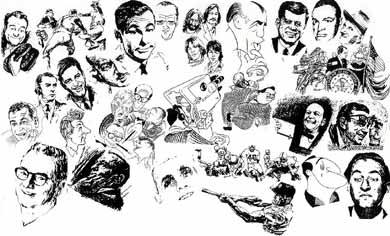
To search for a broadcast, please e nter a
Show Title, Personality, Airdate, Archive ID, Keyword or Phrase into the Search textboxes at the top of the page:
PRESERVING & ARCHIVING THE SOUND OF
LOST & UNOBTAINABLE ORIGINAL TV
(1946 - 1982)
"Preserving & disseminating important TV Audio
Air Checks, the video considered otherwise lost."
-Library of Congress
Vintage Television Audio Broadcasts
22,000 Titles - 20,000 Hours
Home | About us | Order Inquiry | TV Categories | Personality Index | Title Index
Archival Television Audio, Inc.
www.atvaudio.com
209 Sea Cliff Avenue
Sea Cliff, New York 11579
Attention: Phil Gries
|
Founder & Owner Phil Gries Director of Photography www.philgries.com |
"Any Inquiries"
Phone/Fax: (516) 656-5677
Email Us: gries@atvaudio.com
© 2002-2024 Collector's Choice Archival Television Audio, Inc.
All Rights Reserved.

Unique Visitors:
Visitor Counter
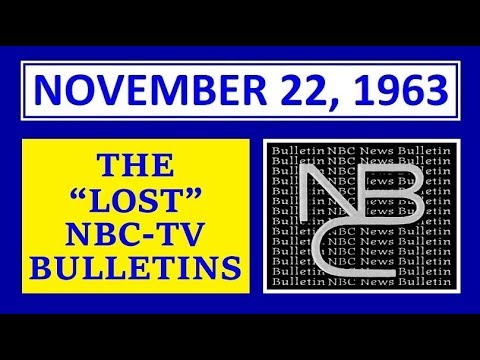
UNIQUE in the WORLD audio air check recordings by 20-year-old Phil Gries, archiving the first, second bulletins & initial NBC TV broadcast coverage of President John F. Kennedy's assassination. Not recorded by NBC or any other resource in the country.
- A&E TV SPECIAL - host Edwin Newman (11-22-1988) introduction - 25th Anniversary of JFK Assassination.
- NBC TV "Lost Don Pardo Bulletins" & Lost first 3:53 TV coverage (Phil Gries unique broadcast audio recording) unable to be video tape recorded or audio tape recorded by NBC.
- Phil Gries telephone interview with Don Pardo (5-14-1998).
- 10 minutes.
LIVE with PHIL GRIES
ARCHIVAL TELEVISION AUDIO - WEBINAR
Each Friday Evening from 7:30 - 8:30PM EST.
 RETRIEVABLE LOST MEMORIES
RETRIEVABLE LOST MEMORIESORDER
Vintage Television Audio Broadcasts
22,000 Titles
20,000 Hours
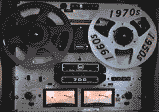
Testimonials
The Senior Moments Radio Broadcast show interviews Phil Gries about his Archival Television Audio archive and his restored documentary film, "Harlem School 1970"

Glen Cove Senior Center
January 23, 2018
 Phil Gries' recordings
Phil Gries' recordingsof vintage sounds
never grow old.

Hear Phil Gries on

Hear Phil Gries
and Joe Franklin
on Bloomberg Radio
(April 28, 2012)

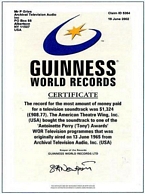
Home
Contact Us
ORDER INQUIRY
Hear Phil Gries on
National Public Radio
Archive Profile

ALL THINGS CONSIDERED
"Raising Ali"
(May 22, 2015)
Hear Phil Gries
on Sports Talk:
August 25, 2019
June 26, 2016
August 9, 2015


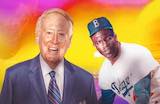

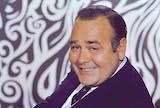
 Archive
ArchiveSearch Library
TV Categories
Personality Index
Title Index
ARSC Journal Article Publication: Lost TV Programs (1946-1972)

Hear Phil Gries presentations at ARSC (Association for Recorded Sound Collections) 2001, 2008, 2009, 2010, 2011, 2014.
Audio Samples

(Audio files may take 20 seconds or more to load)
1960's TV
Audio Player
103 Broadcast Samplers
AudioAndText™
Content
(Browser needs to
allow Flash content)
Content Collections
JFK Assassination
Coverage
NPR Walter Cronkite Essays
Civil Rights Movement (1956-1968)
Space Exploration (1956-1972)
Vietnam War
(1961-1975)
[854 Entries]
Company Information
About Us
Descriptions
Access
Fees
Archive
TIME-LINE
Accreditation
Master Materials
Research
Copyrights
Restricted Archive Titles
Catalogs
Related Materials
TV History
Lost Television
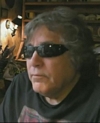
Jose Feliciano, at 70, listening to his FIRST TV variety show appearance (Al Hirt: FANFARE), telecast on July 17, 1965, when he was 19 years old.
TV Audio:
Rare & Valued
When TV Variety
Was King
This Anniversary Day
In Television History
ARSC/IASA London Conference: Why Collect?

News 12 Long Island
Live Television Profile:
Archival Television Audio, Inc
CAPTURED LIVE: CULTURES OF TELEVISION RECORDING AND STORAGE, 1945-1975

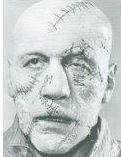
NBC MATINEE THEATER
FRANKENSTEIN
NBC TV - Feb. 5, 1957
8:23 min. excerpt
Phil Gries TV Audio Archive
Profile Segment
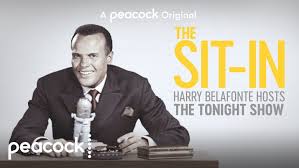
Harry Belafonte Hosts
The Tonight Show
5:21 min. excerpt
Password: Phil
(Case Sensitive)